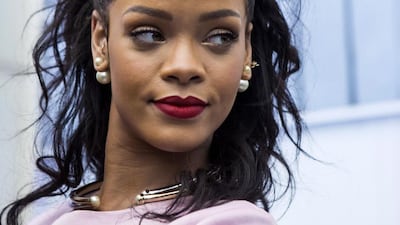Israel’s Gaza onslaught has been accompanied by a war of words among international celebrities in the fields of film, music, sport and comedy, among others. The number of them now openly criticising Israel has reached a previously unheard-of level.
Some observers dismiss this growing phenomenon as trivial and inconsequential. They claim celebrities know little about the Israeli-Palestinian conflict and do not directly affect the situation on the ground. These observers are wrong on both counts.
It shows the strength of public feeling that people who have no personal involvement in the conflict would speak out in industries where their careers could be jeopardised as a result.
Actress Vanessa Redgrave paid a heavy professional price for condemning “Zionist hoodlums” while accepting an Academy Award in 1978. An example was made of her, making it almost impossible for her to find work, and for decades led her colleagues to think long and hard before speaking out.
However, more people are overcoming this fear in Hollywood, which has close ties to Israel.
“It is perhaps the last taboo in Hollywood but the carnage in Gaza is prompting an increasing number of artists and celebrities to do the unthinkable: criticise Israel,” wrote Rory Carroll, a US correspondent for The Guardian.
In truth, the Gaza onslaught has greatly galvanised an existing trend, not created one. Celebrities have been increasingly vocal in recent years – the difference now is that many who are now speaking out had not previously done so.
These famous figures have huge and varied fan bases, so their messages can reach vast audiences via various media, including film, print, radio, the internet and concerts. An online video by Jewish Voice for Peace, involving dozens of celebrities holding up signs with the names and ages of Gaza’s victims, received 100,000 views in just two days.
Social media in particular has played a vital role, ensuring instant, global coverage. For example, Rihanna – who tweeted the hashtag #FreePalestine – has 36 million Twitter followers. One Direction’s Zayn Malik also tweeted #FreePalestine, which was reportedly shared nearly 150,000 times in just a few hours.
This means that even when celebrities have deleted or “clarified” their stances, their original opinions have already gone viral. While many people have understandably expressed disappointment at such backtracking, it nonetheless reveals celebrities’ genuine sympathies. If their statements have been removed or revised, it is because of pressure, not a change in opinion.
Besides, many celebrities have refused to back down in the face of baseless accusations of anti-Semitism and support for Hamas. Some are themselves Jewish, and none has expressed support for the faction. As The Daily Show host Jon Stewart said: “Merely mentioning Israel or questioning in any way the effectiveness or humanity of Israel’s policies is not the same thing as being pro-Hamas.”
Even the predictable, once-feared Hollywood backlash is proving less effective. This may be because of safety in increasing numbers, the barbarity of Israel’s actions, the strength of international solidarity with the Palestinian cause, or the fact that professional success in the entertainment industry is no longer as reliant on “breaking” the American market as it used to be.
In any case, even if celebrities backtrack or stand by Israel, they are still contributing to free publicity for the issue of Palestine. For an example of this, one need only look back to earlier this year, when actress Scarlett Johansson refused to bow to pressure to stop being the poster girl for Israeli company SodaStream, which has a factory on occupied Palestinian territory.
She also stepped down as an ambassador for Oxfam. The pro-Israel camp – and some supporters of the Palestinian cause – viewed this as a defeat for the Boycott, Divestment and Sanctions (BDS) movement against Israel.
However, the actions and reactions of the company, and to a far greater extent Johansson, unwittingly gave BDS a massive – and free – publicity boost, with weeks of global media coverage. SodaStream shares sank to their lowest level since 2012 following the spat.
The importance of celebrity involvement is that it raises awareness of the Palestinian cause among audiences that may not otherwise be aware, let alone involved. This is particularly true of the younger generation – many fans of Rihanna, One Direction and Selena Gomez will have never heard of Palestine until now.
The scope for new, larger audiences is amplified by the celebrity dimension to the conflict being reported in entertainment publications and sections, rather than just as foreign news. There is even reporting on what is not being said.
“Some of the biggest, most well-known supporters of Israel have been the least vocal,” said Danielle Berrin, who blogs for the Jewish Journal. She cited singer Barbra Streisand and director Steven Spielberg, among others.
Celebrity criticisms of Israel are galvanising the BDS movement, which has gone from strength to strength over the years. A growing number of celebrities are not only cancelling gigs in Israel, but also openly supporting a boycott of the country and urging others to do so.
Technology may provide Israel with the means to rain death and destruction, but it is also enabling people worldwide to see the atrocities it is committing, and for the resulting outrage to spread faster and wider than ever before. For all its military might, Israel seems powerless to stop this international awakening.
Sharif Nashashibi is a London-based journalist and analyst on Arab affairs

